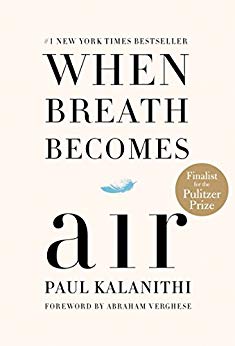

This article is an excerpt from the Shortform summary of "When Breath Becomes Air" by Dr. Paul Kalanithi. Shortform has the world's best summaries of books you should be reading.
Like this article? Sign up for a free trial here .
What is chemotherapy like? While this experience differs from person to person and depends on the illness and treatment a person is receiving, reading about firsthand experiences can be valuable.
Paul Kalanithi was diagnosed with stage IV lung cancer in 2013. Chemotherapy is a common treatment for many types of cancer. Though it was not the initial course of treatment for Paul, he did undergo chemotherapy later in treatment. In this section, Paul describes what chemo is like for him.
Shortform note: This article and our summary of When Breath Becomes Air is written in a way that allows you to share in the experience provided by the memoir.
Simply reading about the content of the story seems insufficient in expressing the emotional journey. To really provide you with the sensation this book creates, we wrote in the first person, using a voice similar to his. We highly recommend reading the original book for the full experience. Reading the words coming directly from him is a powerful experience we can’t replace.
A New Treatment Plan
Shortform note: Paul’s initial treatment included use of Tercvera, not chemotherapy. Often, people want to know: what is chemotherapy like and what does chemo feel like? Below, he explains finding out the cancer has spread and how he knows, as a doctor, that it will mean chemotherapy as the next course of action. But what is chemotherapy like? Paul explains his firsthand experience.
I went in for my last scan before graduation, before our baby was born, and before my new future self began. Unlike previous scans, when I reviewed them right away, I had to wait. Patients and duties of both the chief resident and physician needed my attention.
Two hours after my scan, I opened up the scans of my current patients, reviewing them and making plans for how to approach the following day. When I was finished, I pulled up my scans from earlier, going through them with the same casual attention I had with my patients’. I didn’t see it at first. But once I did, it was all I could see. Taking up the middle of my right lung was a new sizable tumor.
I took in this information without fear or frustration. It was a certainty as any other, like the rotation of the Earth.
Lucy and I understood what would come next. The tumor would be biopsied and then treatment. Chemo would likely be needed, and things would be harder than last time. We also understood that whatever time we’d thought I had left was now truncated.
We would find out for sure what my life would become on the following Monday, a few days away. But I wondered: what is chemotherapy like? I knew my ability to work as a neurosurgeon would be on hold for a while or for good. Until then, I would continue on as planned, which meant operating in a surgery the next day I was already scheduled for.
I went in to work, scrubbed, possibly for the final time, and performed the procedure successfully. I packed up seven years of personal items, leaving my books for those that came after. I became emotional sitting in my car waiting to leave. But when I got home, I stashed away the items that made me a doctor—white coat, hospital badge, pager, scrubs—and turned to face another new future.
What is Chemotherapy Like? Paul Kalanithi’s Experience
Shortform note: There are many types of chemotherapy, and many people want to know: what is chemotherapy like? The experience of what is chemotherapy like varies depending on the diagnosis, treatment, and other factors. This account is meant to show one answer to the question what is chemotherapy like from the perspective of one person, Paul Kalanithi, as presented in his memoir. To find out the medical answer to the question what is chemotherapy like, to get an idea of what chemo feels like, or to understand risks and side effects, you should consult a doctor.
Emma confirmed what Lucy and I had expected as the next steps. When I told her I was stepping away from work, she didn’t argue this time. She said she understood, as long as I understood that her agreeing wasn’t based on anything different about my condition. I was in the same state of health I had been in days earlier. She wasn’t giving up on my return to the life I wanted, and I shouldn’t either.
I was back on the opposite side of the doctor-patient relationship, back up against a foe that was proving how strong it was despite my strength. Still, Emma’s words were reassuring, as was her advice to simply be a patient, not a doctor involved in my own care, a role I had never considered.
I started chemotherapy on a Monday, and the effects were immediate. I was depleted of energy and the desire to eat. I had to be fed by a tube, and after a few days, life revolved around these timed feedings and languoring in front of the television. I would start to feel better just in time for the next round of chemo.
My time back at work had successfully convinced the neurosurgery department that I had fulfilled the requirements for graduation. The day came for the ceremony, with Lucy still two weeks out from her due date. I was getting ready to accept the marker of seven years of training and persistence when a nausea like nothing I’d felt before came over me. I became violently ill and was taken to the ER, instead of the ceremony.
A medical resident was in charge of my care, trying to rehydrate me after the vomiting turned into diarrhea. I discussed my history with him, including medications, which still included Tarceva. We developed a plan to proceed. I was admitted to the hospital so I could continue IV fluids under observation.
That night, I learned that the resident had removed Tarceva from my list of medications. I had no idea how he felt capable enough to make that decision on his own and challenged it. I told him that Emma was a proponent of Tarceva, but he was adamant the drug was the likely culprit of my current state. I was livid, partly because I knew the likelihood of searing pain I could start to experience without the Tarceva.
In response to my protests, he questioned whether the situation was an actual crisis or could wait to be resolved in the morning. At that moment, I realized I was not going to get the Tarceva. He was more concerned about appearing incompetent to his bosses than fulfilling his responsibility to my care.
The next day, the symptoms I came in with worsened, and my kidneys started to malfunction. I became so dehydrated, my mouth was like sandpaper. My labs showed fatal levels of serum sodium. I was taken to the ICU, where I would stay for enough time for Lucy’s due date to pass.
In the ICU, I ventured in and out of consciousness. At times, I was lucid enough to understand that a myriad of doctors were working on my case, each with a myriad of ideas about what my care should be. When I was able, and with Lucy’s help, I tried to detail my condition to generate some order in my care and keep the doctors on track. When I wasn’t of sound mind, these details could be read back to me.
Emma finally took charge and assuaged the chaotic environment during my stay. I was still incoherent often, but I knew I was in good hands with Emma.
Shortform note: Chemotherapy is an incredibly difficult experience for patients, and is different for everyone. Paul’s first person account reflects some common side affects for those wondering: what is chemotherapy like? Firsthand experience can be valuable for those research what is chemotherapy like, and through this section of the book, Paul shows the physical difficultly many patients prepare for. Paul’s writing also shows that he was always looking for things to hope for when things were hard.

———End of Preview———
Like what you just read? Read the rest of the world's best summary of Dr. Paul Kalanithi's "When Breath Becomes Air" at Shortform .
Here's what you'll find in our full When Breath Becomes Air summary :
- How Paul Kalanithi discovered he had cancer
- How Paul coped with his cancer until his very end
- How Paul's wife dealt with his death and found the strength to continue






